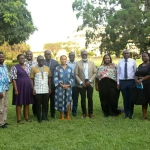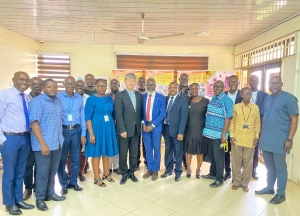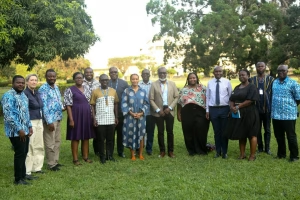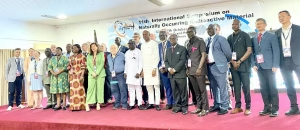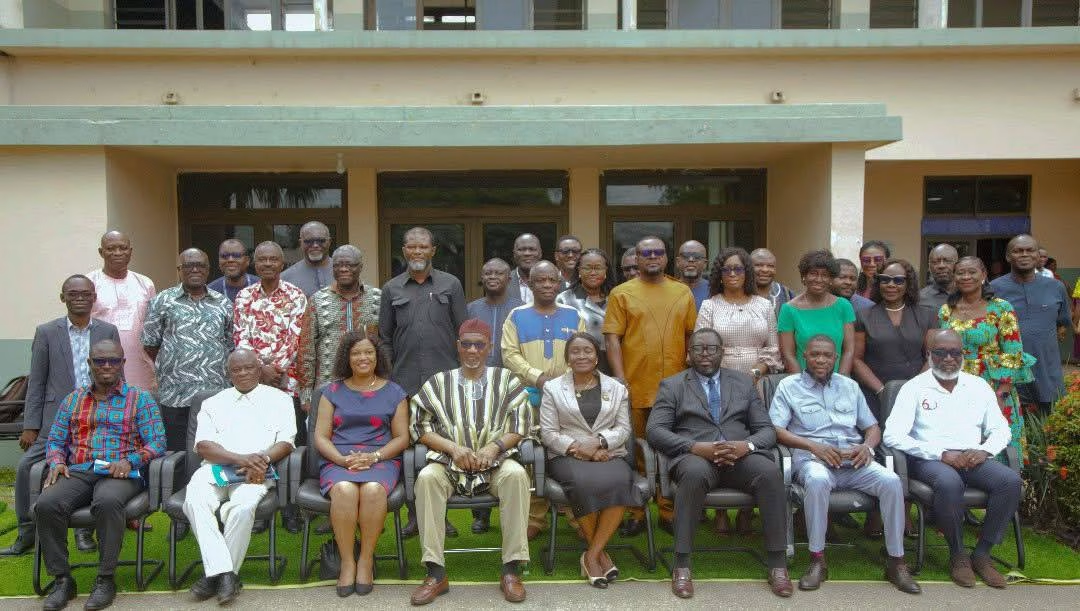
The Ghana Atomic Energy Commission (GAEC) has inaugurated the management boards of its six research institutes and a graduate school at a ceremony in Accra to enhance good governance, efficiency, and sustainability.
The institutes are the National Nuclear Research Institute (NNRI), Radiation Protection Institute (RPI), Biotechnology and Nuclear Agriculture Research Institute (BNARI), Radiological and Medical Sciences Research Institute (RAMSRI), Nuclear Power Institute (NPI), School of Nuclear and Allied Sciences (SNAS), and the Ghana Space Science and Technology Institute (GSSTI).
Addressing the gathering after swearing in members of the boards, the Chairperson of the GAEC Governing Board, Professor Abdulai Baba Salifu, urged them to strengthen institutional governance and scientific leadership within the Commission.
He reminded them that the oaths they had taken were solemn commitments to serve with professionalism and to safeguard the public trust vested in them.
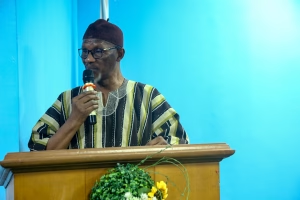
Prof. Salifu emphasised the critical role of the newly inaugurated boards in steering the strategic direction of their respective institutes, describing them as “engines of discovery and application” across key national development areas, including health, agriculture, energy, radiation protection, environmental safety, and space science.
He noted that Ghana’s nuclear power agenda, now advancing through Phase II of the International Atomic Energy Agency’s (IAEA) three-phased approach, requires strong institutional governance and scientific leadership.
“Ghana’s pursuit of nuclear energy represents not merely an infrastructure ambition but also an energy-security imperative,” Prof. Salifu stated, adding that the institutes under GAEC would be pivotal in strengthening research, capacity building, and safety frameworks to support the country’s nuclear energy aspirations.
Prof. Salifu further encouraged the institutes to align their activities with national research and innovation priorities, including the National Research Fund, the Feed Ghana Programme, and emerging initiatives such as the Tree for Life Initiative and the National Artificial Intelligence Strategy.
He called for deeper collaboration with universities, industry, and government agencies to ensure GAEC’s scientific research translates into solutions that benefit the everyday lives of Ghanaians.
On his part, the Director-General of GAEC, Prof. Samuel Boakye Dampare, described the inauguration as a reaffirmation of the Commission’s commitment to good governance and institutional efficiency.
“Today’s event is not just a formality; it is a reaffirmation of GAEC’s commitment to good governance, institutional efficiency, and strategic leadership across our research and operational arms,” Prof. Dampare said.
He commended the GAEC Board for its leadership in constituting the new boards and praised the diverse professional expertise of the members, noting that their inclusion demonstrates a strong belief in collaborative governance and evidence-based decision-making.
Prof. Dampare urged the members to work closely with their respective Institute Directors and align their actions with the Commission’s strategic objectives, stressing the importance of transparency, professionalism, and the national interest in all deliberations.
By: CPRC/CCD


